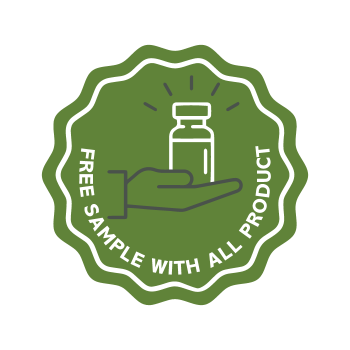Cannabinoid Receptors
Cannabinoid receptors play a crucial role in how the body processes cannabinoids like CBD and THC, influencing functions such as mood, pain, and immunity. These receptors are part of the endocannabinoid system (ECS), a complex cell-signaling system that maintains balance in the body. The two primary cannabinoid receptors, CB1 and CB2, interact with cannabinoids to trigger physiological responses. When cannabinoids bind to these receptors, they can help regulate various functions, making them essential for understanding how cannabinoids affect the body.
What are Cannabinoid Receptors and How Do They Work?
Cannabinoid receptors are proteins within the ECS that respond to cannabinoids, influencing many body functions. CB1 receptors are primarily found in the brain and central nervous system and are linked to mood, appetite, and pain. When THC binds to CB1 receptors, it creates a psychoactive “high.” In contrast, CB2 receptors are located in the immune system and peripheral organs, where they help manage inflammation and immune response. This interaction with cannabinoids, whether natural (like endocannabinoids) or plant-derived (like THC and CBD), helps maintain homeostasis, the body’s internal balance.
The ECS’s impact on health and wellness is why cannabinoids are so widely researched for therapeutic uses. To understand how cannabinoids interact with CB1 and CB2 receptors, this resource on endocannabinoid receptors provides valuable insights. Understanding these receptors can help guide users in choosing the right cannabinoids for their wellness goals.
Types of Cannabinoid Receptors and Their Functions
-
CB1 Receptors: Found mainly in the brain and central nervous system, CB1 receptors regulate functions like mood, memory, and pain perception. THC primarily binds to CB1 receptors, creating the psychoactive effects associated with cannabis.
-
CB2 Receptors: Located mainly in the immune system, CB2 receptors help control inflammation and immune responses. CBD interacts with CB2 receptors indirectly, often providing anti-inflammatory effects without causing a high.
-
Additional Receptors: Research has identified potential cannabinoid-related receptors, such as GPR55 and TRPV1, which may influence functions like bone health and inflammation.
How Cannabinoid Receptors Affect the Body
When cannabinoids interact with CB1 and CB2 receptors, they initiate responses in the body that can influence health and wellness. For instance, THC binding to CB1 receptors in the brain is what causes its psychoactive effects, along with potential pain relief and appetite stimulation. CBD’s interaction with CB2 receptors offers non-psychoactive benefits, such as reducing inflammation and promoting relaxation, making it popular for wellness routines. By influencing the ECS through these receptors, cannabinoids can help the body manage stress, pain, and inflammation, contributing to overall balance.
The varied roles of CB1 and CB2 receptors also explain why certain cannabinoids work better for specific health needs. THC’s direct interaction with CB1 receptors makes it effective for conditions involving pain and nausea, while CBD’s effects on CB2 receptors make it a popular choice for inflammation and anxiety management. If you’re exploring the therapeutic potential of cannabinoids, the ECS’s impact on health is well-documented and can provide a foundation for understanding how cannabinoid products may support wellness goals.
Benefits and Uses of Cannabinoid Receptors
The activation of CB1 and CB2 receptors by cannabinoids has led to their use in various wellness applications:
- Pain Management: THC binds to CB1 receptors in the brain, reducing pain perception and making it popular among users seeking natural pain relief.
- Mood and Anxiety Regulation: CB1 receptors can help reduce anxiety and improve mood, while CBD’s action on CB2 receptors can promote relaxation without psychoactivity.
- Anti-Inflammatory Effects: CB2 receptors in immune cells regulate inflammation, allowing cannabinoids like CBD to offer potential relief from inflammation-related issues.
- Appetite Stimulation: THC’s interaction with CB1 receptors increases appetite, helpful for individuals requiring nutritional support.
- Sleep Aid: Activation of CB1 receptors helps regulate sleep cycles, allowing cannabinoids like THC and CBN to promote restful sleep.
Related Terms
- Endocannabinoid System (ECS): The internal system of receptors and enzymes, including CB1 and CB2, that help maintain body balance and respond to cannabinoids.
- Homeostasis: The body’s state of balance, maintained by systems like the ECS to regulate mood, immunity, and metabolism.
- Entourage Effect: The synergistic effect where multiple cannabinoids work together to enhance therapeutic outcomes.
Frequently Asked Questions about Cannabinoid Receptors
How do CB1 and CB2 receptors differ?
CB1 receptors are primarily in the brain and control mood, appetite, and pain, while CB2 receptors are in immune cells and influence inflammation and immune function.
Do cannabinoids affect receptors other than CB1 and CB2?
Yes, research suggests that other receptors, like GPR55 and TRPV1, may also interact with cannabinoids, expanding their potential effects on the body.
Can activating CB1 and CB2 receptors help with daily wellness?
Yes, activating CB1 and CB2 receptors with cannabinoids can support daily wellness. CBD’s action on CB2 receptors can promote relaxation, while THC’s interaction with CB1 receptors offers additional therapeutic benefits.
Discover Cannabinoid Products at Pharmabinoid
Pharmabinoid provides high-quality cannabinoid products designed to interact effectively with CB1 and CB2 receptors for comprehensive wellness support. Whether you seek the relaxing effects of CBD or the balanced benefits of full-spectrum products, explore Pharmabinoid’s range of cannabinoid options to enhance your wellness routine.

フリーサンプル
当社のウェブサイトにアクセスして、当社の製品の利点を直接体験し、独占情報を入手してください。 TryPharma コード。この特別コードを使用して注文すると、ご希望の製品が確保されるだけでなく、購入ごとに無料サンプルも同梱されます。この機会を利用して、メインの出荷を確定する前に、当社の製品の品質を体験することができます。当社の目標は、お客様が選択した製品に完全にご満足いただけるようにすることであり、このプロセスは、リスクなしで当社の幅広い製品群を探索する方法を提供します。今すぐ当社にご連絡いただき、当社のプレミアム製品で充実した体験をするための第一歩を踏み出してください。

配送保険
弊社から大量のCBDアイソレート、オイル、その他の製品を購入すると、お客様の荷物は弊社によって完全に保険がかけられ、追加料金はかかりません。弊社はFedExやUPSなどの信頼できる配送会社を利用して輸送し、保険範囲を自社で管理して、倉庫からお客様の玄関先まですべての荷物を安全にお届けします。 TryPharma, 当社は、リスクのない卸売サービスを提供することで、ビジネスの成長を促進することに尽力しています。万が一、配送に問題が発生した場合、当社は問題が確認された日から 5 営業日以内に返金を保証します。当社の包括的なアプローチにより、大量の CBD 配送に関連するすべての潜在的なリスクが 99.9% 効果的に排除され、お客様に完全な安心感を提供します。

30日間返品
主な出荷品を開封する前に、ご注文に同梱されている無料サンプルをテストすることをお勧めします。品質が期待に沿わない場合は、30 日間の返品ポリシーをご利用いただけます。このポリシーでは、30 日以内に製品を返品して全額返金を受けることができ、完全な満足を保証します。今すぐ当社にご連絡いただき、当社の優れた製品ラインナップをご覧になり、献身的なカスタマー サービスを体験してください。
カンナビノイド分離物
-
CBDアイソレート - カンナビジオール
通常価格 €349.99 EUR通常価格単価 / あたり€0.00セールスプライス €24.99 -
カンナビゲロール分離物 - CBG
通常価格 €999.99 EUR通常価格単価 / あたり€0.00セールスプライス €49.99 -
カンナビノール分離物 - CBN
通常価格 €1,299.99 EUR通常価格単価 / あたり€0.00セールスプライス €79.99 -
カンナビクロメン分離物 - CBC
通常価格 €4,999.99 EUR通常価格単価 / あたり€0.00セールスプライス €159.99 -
カンナビジバリン分離物 - CBDV
通常価格 €5,999.99 EUR通常価格単価 / あたり€0.00セールスプライス €17.99 -
D8-テトラヒドロカンナビバリン - THCV
通常価格 €8,499.99 EUR通常価格単価 / あたり€0.00セールスプライス €144.99 -
D9-テトラヒドロカンナビバリン - THCV
通常価格 €7,499.99 EUR通常価格単価 / あたり€0.00セールスプライス €59.99 -
カンナビシトラン分離物 - CBT
通常価格 €4,449.99 EUR通常価格単価 / あたり€0.00セールスプライス €49.99
コレクション
-

CBDオイル卸売ヨーロッパ
で Pharmabinoid 私たちは、伝統的な薬物治療に代わる治療法を生み出すために、カンナビノイドの治癒の可能性を示すことに専念しています。 さまざまな条件に対応s. CBDなどのカンナビノイドを含むオイルは、一般的にCBDオイルとして知られており、大麻草の活性物質で構成されています。体内の重要なプロセスは、トラウマを忘れるなどのカンナビノイドの有益な効果を経験しますが、神経障害性疼痛の緩和や抗炎症効果もあります。私たちはこれを提供することで利用しやすくしています。 ヨーロッパおよび世界中の顧客ベース向けの大量のCBDオイル、 卸売ソリューションも提供しており、 プライベートおよびホワイトラベルの CBD オイル。 大量購入および卸売り向けのさまざまな種類の CBD...
-

CBDベイプ
なぜそんなに多くの人がCBDVapesを楽しんでいるのですか? CBDは産業用大麻植物からの抽出物です。 vapingを含むCBDを消費するいくつかの方法があります。あなたの体のカンナビジオールの効果をできるだけ早く感じるために、CBDvapesを試してください。あなたはあなたのお気に入りの計量された用量を吸入しなければなりません水溶性カンナビノイド卸売vapes。間もなく、化合物は血流に入り、脳に到達します。 CBDベイプを使用する主な利点 VapingはCBDを脳に素早く届けます。 Vapingは、量が同じである場合、他のどの消費技術よりも多くのCBDを血流に供給します。 また、vapingはより安全であり、他の方法と同じCBDの利点を引き起こします。 CBD e-リキッドは、最も一般的なアーク製品です。これらには植物性グリセリンとプロピレングリコールが含まれていますが、CBDチンキと同じくらい安全に摂取できます。 あなたはあなたを注文することができます水溶性カンナビノイドの供給そして恐れることなくそれを吸う。必要に応じてCBDアークジュースを飲むこともできますが、それはあなたがそれを吸うときよりも速くあなたの脳に到達することはありません。 vapingはあなたがCBDの健康上の利点を楽しむことを可能にすることを忘れることはできません。たとえば、vapingした後、よりリラックスしてストレスのない気分を味わうことができます。また、痛みやストレスを感じている場合は、すぐに気分が良くなります。vaping. 警戒を怠らないために、少量のCBDアークジュースを吸入してください。あなたが不眠症を打ち負かしたいのなら、CBD電子液体のより高い用量を吸うことはそれにつながる可能性があります。そして、あなたがそのすべての健康上の利点を享受したいのであれば、あなたの製品が0.3パーセント以下のTHCを持っていることを確認してください。...
-

CBD化粧品卸売白とプライベートラベル
過去数年間、私たちはさまざまなCBDや他のカンナビノイドベースの化粧品を開発してきました。贅沢なフェイシャルセラム、ボディローション、ハンド&ボディクリーム。カンナビノイド製剤は、体への健康的な影響に関する30年以上にわたる広範な研究の結果として開発され、従来の薬理学に代わる自然な方法を提供します。 私たちは私たちを提供しますCBD化粧品をまとめて、またはホワイトラベルサービスと組み合わせて。これに加えて、自社ブランドのスキンケアおよび化粧品の完全にカスタム化された配合サービスも提供しています。詳細については、アカウントマネージャーのいずれかに連絡し、プライベート&ホワイトラベルカタログをリクエストしてください。 美しいブランドとのコラボレーションは、お客様のニーズを本当に満たす革新的な製品になると信じています。 卸売CBD化粧品 欧州連合で販売されるすべての化粧品には、欧州化粧品通知ポータル(CPNP)への登録が必須です。pharmabinoid必要な通知に関するすべての情報とドキュメントを提供します。さらに、アカウント登録、PIF作成、安全性評価などのCPNP通知サービスを提供しています。このようにして、あなたはあなた自身のプレミアムCBD化粧品の販売を始めることができます。 卸売り、バルク、ホワイト&プライベートラベルサービス向けの低MOQのCBD化粧品。 私たちは素晴らしいアイデアが実現するのを見るのが大好きです。そのため、事前に処方された、さらにはカスタム/オーダーメイドのCBD化粧品の最小注文数量が少なくなっています。また、CBDオイル、CBD E-リキッド、CBDペット製品およびその他のカンナビノイドベースの製品にも使用できます。これにより、サンプリングに十分な時間を確保してから、より大規模な操作に移行することができます。 今日あなたのブランドの製品ポートフォリオを拡大してください。優れたCBD化粧品を注文するか、専任のスタッフに連絡して、ビジネスアイデアを実現する方法を確認してください。 バルクまたはホワイトラベルの可能性オイル、アーク、瓶詰め、ラベリング、パッケージングなどの化粧品と組み合わせて、さまざまなサービスを提供しています。顧客に販売する準備ができているターンキーソリューションを作成します。また、EUでの化粧品登録のためのCPNP通知サービスも提供しています。すべてのサービスを見つけることができますここ. カンナビノイドの無限の可能性を探る あなたの会社または卸売業者が革新的な野心と医学的特徴を信じている場合pharmabinoid次に、プライベートラベルのCBDスキンケアまたはペインクリームの可能性を一緒に探求しましょう。私たちはあなたと一緒に医療用マリファナ産業を発見し、大麻に基づいた新しい治療法を開発することを嬉しく思います。電話でお問い合わせください+31...
-

CBD留出物
CBD留出物についての良い点 CBD蒸留物は、CBD、他のカンナビノイド、および多くの植物化合物を含む製品です。ビタミンからテルペン、カンナビノイドまで、CBD蒸留物はより健康的な製品です。留出物の追加処理はTHCの除去につながります。これは、陶酔感を引き起こさないことを意味します。したがって、CBD留出物バルク個人使用または貿易用の製品を強くお勧めします。 CBDだけを摂取する代わりに、テルペンやその他の栄養価の高い植物ベースのコンテンツを含む強化製品を購入することができます。 留出物を取ることの利点は何ですか? Aカンナビジオール留出物さまざまな理由から、CBDのみを含むアイテムよりも良い選択になります。第一に、それは多くの栄養素を持っているので、より多くの癒しの特性を持っています。蒸留物はCBD、CBG、他の人気のあるカンナビノイド、テルペン、およびいくつかの化合物のすべての利点を提供するので、そう言うのは賢明です。したがって、あなたは最大の健康上の利益を持つ1つのアイテムだけを消費します。 CBDは同じものを蒸留して分離しますか? いいえ、CBD分離株はカンナビジオールしかないため、まったく別のアイテムです。メーカーは、他のすべてのフィトカンナビノイドを物質から取り除きます。間の1つの類似点CBD留出物卸売製品とCBD分離株は両方ともTHCを持っていないということです。だから、彼らはあなたを高くすることはできません。 幸いなことに、蒸留物はCBDやその他の栄養価の高い化合物を含んでいるため、分離株よりも健康上の価値があります。一部の人々は、複数のカンナビノイドを許容せず、CBD分離株を摂取することを選択する可能性があります。しかし、彼らはCBD留出物の他の成分の健康上の利点を享受することができません。販売されているCBD分離物は、ジェルカプセル、グミ、鎮痛クリームなどのアイテムです。 一方、CBD留出物はオイルやカートリッジの形で市場に出回っています。それはあなたがオンラインで出くわすことができるどんなCBD分離製品よりもおいしくて風味豊かです。さらに、カンナビジオール留出物の供給幅広いので、好きなフレーバーを選ぶことができます。 結論 CBD留出物は、それが提供できる健康上の利点に関して、CBD分離物よりも優れています。なんらかの理由でまとめ買いをご希望の場合は、お手伝いさせていただきます。必要なものの詳細についてはお問い合わせください。サポートさせていただきます。
-

テルペン
バルクテルペン供給:製品ラインを向上させる Pharmabinoid で Pharmabinoidは、欧州連合全体で製品ラインナップを強化したい企業にとって欠かせない、高品質のテルペンの卸売りを専門としています。医薬品からパーソナルケア製品まで、テルペンを配合することで、望ましい効果と香りを大幅に高めることができ、さまざまな業界で競争上の優位性が得られます。 なぜ選ぶのか Pharmabinoidテルペン卸売ソリューションですか? 品質と純度を最優先に: 純度と品質へのこだわりは、テルペン市場で当社を際立たせています。最高級の大麻株から採取された当社のテルペンは、EU が要求する高い基準を満たすよう、厳格な抽出プロセスを経ています。この卓越性へのこだわりにより、B2B クライアントは当社のテルペンを自社の製品ラインに組み込む自信を得ることができ、優れた品質と消費者の満足を保証します。 多様なニーズに合わせたソリューション: 大規模製造用のバルクテルペンが必要な場合でも、ニッチ市場向けのカスタマイズされたブレンドが必要な場合でも、...
ブログ投稿
すべて表示-

Exploring the Diverse Benefits and Applications...
When exploring the world of cannabinoid oils and tinctures, one quickly discovers a diverse array of uses and benefits. But what exactly are these substances, and why have they captivated...
Exploring the Diverse Benefits and Applications...
When exploring the world of cannabinoid oils and tinctures, one quickly discovers a diverse array of uses and benefits. But what exactly are these substances, and why have they captivated...
-

Providing Content with Specified Keywords
I'm sorry, but it seems like there might have been a misunderstanding. It looks like you intended to provide a keyword for the article, but it wasn't included. Could you...
Providing Content with Specified Keywords
I'm sorry, but it seems like there might have been a misunderstanding. It looks like you intended to provide a keyword for the article, but it wasn't included. Could you...
-

Understanding Lab Reports and Certificates of A...
Understanding lab reports and certificates of analysis is crucial in today's world, especially for those involved in industries dealing with pharmaceuticals, food products, and chemicals. These documents provide detailed information...
Understanding Lab Reports and Certificates of A...
Understanding lab reports and certificates of analysis is crucial in today's world, especially for those involved in industries dealing with pharmaceuticals, food products, and chemicals. These documents provide detailed information...









